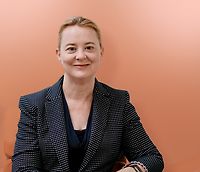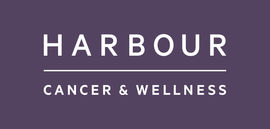Central Auckland, East Auckland, North Auckland, Northland, South Auckland, West Auckland > Private Hospitals & Specialists >
Harbour Cancer & Wellness
Private Service, Oncology, Haematology
Today
Northern Clinic - Southern Cross North Harbour Campus, 212 Wairau Road, Wairau Valley, Auckland
8:00 AM to 4:30 PM.
105 Carlton Gore Road, Newmarket, Auckland
9:00 AM to 4:30 PM.
Description
Harbour Cancer & Wellness is a leading cancer treatment centre with clinics in Auckland’s North Shore and Newmarket. Our specialists integrate cutting edge treatment, prescribed exercise and supportive therapies to provide exceptional care for people with cancer. By participating in world-leading clinical trials we can offer our patients access medicines and cancer treatments that would otherwise not be accessible in New Zealand.
OUR SERVICES
Cutting-edge Treatment
We provide cancer treatments across all tumour streams including chemotherapy, immunotherapy, targeted therapies, hormonal treatment, haematology services and symptom management.
Oncology Physiotherapy and Exercise referrals
Prescribed exercise treatment is considered the gold standard of cancer care. Hands-on oncology physiotherapy treatment and tailored exercise sessions can minimise side effects of cancer treatment and maximise clinical outcomes.
We assess options for each patient and refer to preferred community-based providers most suited to support specific needs.
Pharmaceutical Guidance
Our in-house pharmacist provides expert knowledge of pharmaceutical treatments, as well as information and education on complementary medicine.
Genetic Counselling
We have Genetic Counselling services available which assist both oncologist and patient to understand the genetic underpinnings of a diagnosis and to identify potential treatment options, information on ongoing follow up (post all treatment) and potentiality for other cancer risk. A Genetic Counsellor can also assist with discussing the results as a family; providing either reassurance or predictive testing options with risk assessment and screening advice.
Psychological Counselling referrals
For patients and their support people, seeing a psychologist gives the opportunity to talk confidentially for help with understanding the implications of their diagnosis, decision-making for treatment, coping with treatment, anxiety and stress, low mood and depression, grief and loss.
Dietitian referrals
A dietitian provides personalised eating plans and nutrition recommendations to help manage treatment side effects which may include nausea, weight loss, weight gain, low energy, fatigue, mouth pain and painful swallowing. Specialist advice covers managing changes to gastrointestinal function and digestion, as well as tips on reducing inflammation and improving immune function.
Massage Therapy referrals
Specialist massage therapy can be a valuable part of treatment and recovery.
Our Team
Our Oncologists and Haematologists have expertise in all tumour types including blood cancers, and cancers of the breast, lung, melanoma, male genitourinary system (prostate, bladder and kidney), female reproductive system (ovary, uterus and cervix), gastrointestinal tract (oesophagus, stomach and bowel), brain and cancers of unknown primary.
Our clinics are designed for comfort, convenience and privacy, and our experienced team is here to support you through the whole of your cancer journey.Consultants
Note: Please note below that some people are not available at all locations.
-

Dr Karen Amies
Medical Oncologist
Available at Northern Clinic - Southern Cross North Harbour Campus, 212 Wairau Road, Wairau Valley, Auckland
-

Dr Amanda Ashley
Medical Oncologist
Available at all locations.
-

Dr Anna Bashford (Medical Oncologist)
Medical Oncologist
Available at 105 Carlton Gore Road, Newmarket, Auckland
-

Dr Catherine Bennett
Medical Oncologist
Available at all locations.
-

Dr Rory Bennett
Haematologist
Available at Northern Clinic - Southern Cross North Harbour Campus, 212 Wairau Road, Wairau Valley, Auckland
-

Dr Leanne Berkahn
Haematologist
Available at 105 Carlton Gore Road, Newmarket, Auckland
-

Dr Joanna Connor
Medical Oncologist
Available at 105 Carlton Gore Road, Newmarket, Auckland
-

Dr Sanjeev Deva
Medical Oncologist
Available at all locations.
-

Dr Anna Elinder Camburn
Haematologist
Available at Northern Clinic - Southern Cross North Harbour Campus, 212 Wairau Road, Wairau Valley, Auckland
-

Dr Soizick Mesnage
Medical Oncologist
Available at all locations.
-

Dr Angela Mweempwa
Medical Oncologist
Available at all locations.
-

Dr Gareth Rivalland
Medical Oncologist
Available at all locations.
-

Dr Rebecca Roberts
Medical Oncologist
Available at all locations.
-

Dr Tom Sapsford
Haematologist
Available at Northern Clinic - Southern Cross North Harbour Campus, 212 Wairau Road, Wairau Valley, Auckland
-

Dr Jane So
Medical Oncologist
Available at all locations.
-

Dr Rosalie Stephens (nee Fisher)
Medical Oncologist
Available at all locations.
How do I access this service?
Contact us
Harbour Cancer & Wellness
09 220 3333
referrals@harbourcancer.co.nz
EDI: cancwell
Referral Expectations
For patients
At Harbour we know how stressful a diagnosis of cancer can be. Once you have been referred to us we will guide you through any treatment or investigations you may need. In the meantime, see frequently asked questions.
For referrers
We welcome your referrals via referrals@harbourcancer.co.nz or EDI: cancwell
Fees and Charges Description
Harbour Cancer & Wellness is an Affiliated Provider to Southern Cross Health Insurance for selected services. We also have relationships for direct billing with Accuro, AIA, NIB, Partners Life, Unimed, ACC and other insurers.
Hours
Northern Clinic - Southern Cross North Harbour Campus, 212 Wairau Road, Wairau Valley, Auckland
8:00 AM to 4:30 PM.
| Mon – Fri | 8:00 AM – 4:30 PM |
|---|
Public Holidays: Closed Waitangi Day (6 Feb), Good Friday (3 Apr), Easter Sunday (5 Apr), Easter Monday (6 Apr), ANZAC Day (observed) (27 Apr), King's Birthday (1 Jun), Matariki (10 Jul), Labour Day (26 Oct), Auckland Anniversary (1 Feb).
105 Carlton Gore Road, Newmarket, Auckland
9:00 AM to 4:30 PM.
| Mon – Thu | 9:00 AM – 4:30 PM |
|---|
Public Holidays: Closed Waitangi Day (6 Feb), Good Friday (3 Apr), Easter Sunday (5 Apr), Easter Monday (6 Apr), ANZAC Day (observed) (27 Apr), King's Birthday (1 Jun), Matariki (10 Jul), Labour Day (26 Oct), Auckland Anniversary (1 Feb).
Procedures / Treatments
Cancer is diagnosed with a number of tests but usually a biopsy is needed. This is where a sample of the lesion/growth is sent to the laboratory to be examined under the microscope. This can tell the doctors exactly what type of cancer is present and guides them to what sort of treatment might be best. Samples can be obtained with different techniques: Fine needle aspirate (FNA): a small needle is inserted into a lump and some cells are sucked out and sent to the laboratory. If the lump is on the surface of your body the doctor will do this in the consultation room with some local anaesthetic injected into the skin so the procedure won’t hurt. If the tumour is inside your body an FNA can still be done but it is done with guidance from a CT scanner or ultrasound so the doctor can see where the needle needs to go. This is done by a specialist radiologist (a doctor trained in the speciality of x-rays). Biopsy: a small piece of a lesion is cut out and sent to the laboratory. If it is on the outside of your body this procedure is done with local anaesthetic (makes the area numb so it doesn’t hurt). Sometimes it can be done by putting tiny telescopes into areas they can’t reach to take the biopsy. Sometimes an operation is required to be sure about the diagnosis. Endoscopy: a flexible tube with a viewing lens and a fibre optic light on the end is passed through natural body orifices (openings) to view the colon (colonoscopy), stomach (gastroscopy) or lungs (bronchoscopy). Laparoscopy: similar to endoscopy, but requires a small cut (incision) to be made in the body such as the abdominal (tummy) wall. The laparoscope is then pushed through the incision to look for possible areas of cancer, which can then be biopsied. When this type of procedure is done in the chest it is called a thoracoscopy or mediastinoscopy. Other tests are often needed to establish the diagnosis and extent of a cancer. These include blood and urine tests, CT or MRI scans, ultrasounds, nuclear medicine scans. Once the diagnosis is established you will meet with various specialists to talk about what treatment options are available and the benefits and risks of those treatments as well as what the diagnosis means. It is a good idea to have a support person with you for these consultations as a lot of information is often given and it can be hard to take it all in. It is a good idea to write down a list of questions you might want to ask.
Cancer is diagnosed with a number of tests but usually a biopsy is needed. This is where a sample of the lesion/growth is sent to the laboratory to be examined under the microscope. This can tell the doctors exactly what type of cancer is present and guides them to what sort of treatment might be best. Samples can be obtained with different techniques: Fine needle aspirate (FNA): a small needle is inserted into a lump and some cells are sucked out and sent to the laboratory. If the lump is on the surface of your body the doctor will do this in the consultation room with some local anaesthetic injected into the skin so the procedure won’t hurt. If the tumour is inside your body an FNA can still be done but it is done with guidance from a CT scanner or ultrasound so the doctor can see where the needle needs to go. This is done by a specialist radiologist (a doctor trained in the speciality of x-rays). Biopsy: a small piece of a lesion is cut out and sent to the laboratory. If it is on the outside of your body this procedure is done with local anaesthetic (makes the area numb so it doesn’t hurt). Sometimes it can be done by putting tiny telescopes into areas they can’t reach to take the biopsy. Sometimes an operation is required to be sure about the diagnosis. Endoscopy: a flexible tube with a viewing lens and a fibre optic light on the end is passed through natural body orifices (openings) to view the colon (colonoscopy), stomach (gastroscopy) or lungs (bronchoscopy). Laparoscopy: similar to endoscopy, but requires a small cut (incision) to be made in the body such as the abdominal (tummy) wall. The laparoscope is then pushed through the incision to look for possible areas of cancer, which can then be biopsied. When this type of procedure is done in the chest it is called a thoracoscopy or mediastinoscopy. Other tests are often needed to establish the diagnosis and extent of a cancer. These include blood and urine tests, CT or MRI scans, ultrasounds, nuclear medicine scans. Once the diagnosis is established you will meet with various specialists to talk about what treatment options are available and the benefits and risks of those treatments as well as what the diagnosis means. It is a good idea to have a support person with you for these consultations as a lot of information is often given and it can be hard to take it all in. It is a good idea to write down a list of questions you might want to ask.
Cancer is diagnosed with a number of tests but usually a biopsy is needed. This is where a sample of the lesion/growth is sent to the laboratory to be examined under the microscope. This can tell the doctors exactly what type of cancer is present and guides them to what sort of treatment might be best.
Samples can be obtained with different techniques:
- Fine needle aspirate (FNA): a small needle is inserted into a lump and some cells are sucked out and sent to the laboratory. If the lump is on the surface of your body the doctor will do this in the consultation room with some local anaesthetic injected into the skin so the procedure won’t hurt. If the tumour is inside your body an FNA can still be done but it is done with guidance from a CT scanner or ultrasound so the doctor can see where the needle needs to go. This is done by a specialist radiologist (a doctor trained in the speciality of x-rays).
- Biopsy: a small piece of a lesion is cut out and sent to the laboratory. If it is on the outside of your body this procedure is done with local anaesthetic (makes the area numb so it doesn’t hurt). Sometimes it can be done by putting tiny telescopes into areas they can’t reach to take the biopsy. Sometimes an operation is required to be sure about the diagnosis.
- Endoscopy: a flexible tube with a viewing lens and a fibre optic light on the end is passed through natural body orifices (openings) to view the colon (colonoscopy), stomach (gastroscopy) or lungs (bronchoscopy).
- Laparoscopy: similar to endoscopy, but requires a small cut (incision) to be made in the body such as the abdominal (tummy) wall. The laparoscope is then pushed through the incision to look for possible areas of cancer, which can then be biopsied. When this type of procedure is done in the chest it is called a thoracoscopy or mediastinoscopy.
Other tests are often needed to establish the diagnosis and extent of a cancer. These include blood and urine tests, CT or MRI scans, ultrasounds, nuclear medicine scans.
Once the diagnosis is established you will meet with various specialists to talk about what treatment options are available and the benefits and risks of those treatments as well as what the diagnosis means. It is a good idea to have a support person with you for these consultations as a lot of information is often given and it can be hard to take it all in. It is a good idea to write down a list of questions you might want to ask.
Chemotherapy is the use of medicines to kill or reduce the spread of cancer cells. Chemotherapy is given as cycles and may be given once a day, once a week or even once a month. This depends on the type of cancer and the best regimen (course) as determined by research. Chemotherapy, unlike radiation (which treats only the part of the body exposed to the radiation), treats the entire body. As a result, any cells that may have escaped from where the cancer originated are treated. A doctor who prescribes chemotherapy is known as a medical oncologist. Depending on what type of cancer you have and whether it has spread, your doctor may use chemotherapy to: Eliminate all cancer cells in your body, even when cancer is widespread Prolong your life by controlling cancer growth and spread or Relieve symptoms and improve your quality of life. Most chemotherapy drugs are given in one of the following ways: You might take a tablet or medicine orally (swallow) It may be given intravenously as an injection over a short period of time or as an infusion over a longer period of time. For these treatments you come into the Department usually for part of the day. Side effects Some people have no side effects at all from chemotherapy. Sometimes, however, chemotherapy will make you feel sick. As each type of chemotherapy has different side effects they will be discussed with you prior to starting any treatment so you know what to expect. Chemotherapy targets cells that are quickly dividing, whether it's a cancer cell or not. Therefore, some non-cancer cells that divide quickly are also damaged. The following is a list of some normal cells that divide quickly in the body and may be susceptible to the effects of chemotherapy: Cells in your hair (can cause hair loss) Cells of the skin and mouth (can cause sores in your mouth and dry skin) Cells in your stomach and intestines (can cause you to feel sick, vomit or have diarrhoea) Cells in your bone marrow. This is where your red and white blood cells are made. White blood cells fight infections, so temporarily you are very prone to these and they can become serious. Loss of red blood cells can make you anaemic and tired. There are many medicines you can take to reduce or lessen these unwanted effects of chemotherapy. In some cases, chemotherapy may be the only treatment you need. More often, it's used in conjunction with other treatments, such as surgery or radiation, to improve results. For example, you may receive: Neoadjuvant chemotherapy. The goal of neoadjuvant therapy is to reduce the size of a tumour with chemotherapy before surgery or radiation therapy. Adjuvant chemotherapy. Given after surgery or radiation, the goal of adjuvant chemotherapy is to eliminate any cancer cells that might linger in your body following earlier treatments.
Chemotherapy is the use of medicines to kill or reduce the spread of cancer cells. Chemotherapy is given as cycles and may be given once a day, once a week or even once a month. This depends on the type of cancer and the best regimen (course) as determined by research. Chemotherapy, unlike radiation (which treats only the part of the body exposed to the radiation), treats the entire body. As a result, any cells that may have escaped from where the cancer originated are treated. A doctor who prescribes chemotherapy is known as a medical oncologist. Depending on what type of cancer you have and whether it has spread, your doctor may use chemotherapy to: Eliminate all cancer cells in your body, even when cancer is widespread Prolong your life by controlling cancer growth and spread or Relieve symptoms and improve your quality of life. Most chemotherapy drugs are given in one of the following ways: You might take a tablet or medicine orally (swallow) It may be given intravenously as an injection over a short period of time or as an infusion over a longer period of time. For these treatments you come into the Department usually for part of the day. Side effects Some people have no side effects at all from chemotherapy. Sometimes, however, chemotherapy will make you feel sick. As each type of chemotherapy has different side effects they will be discussed with you prior to starting any treatment so you know what to expect. Chemotherapy targets cells that are quickly dividing, whether it's a cancer cell or not. Therefore, some non-cancer cells that divide quickly are also damaged. The following is a list of some normal cells that divide quickly in the body and may be susceptible to the effects of chemotherapy: Cells in your hair (can cause hair loss) Cells of the skin and mouth (can cause sores in your mouth and dry skin) Cells in your stomach and intestines (can cause you to feel sick, vomit or have diarrhoea) Cells in your bone marrow. This is where your red and white blood cells are made. White blood cells fight infections, so temporarily you are very prone to these and they can become serious. Loss of red blood cells can make you anaemic and tired. There are many medicines you can take to reduce or lessen these unwanted effects of chemotherapy. In some cases, chemotherapy may be the only treatment you need. More often, it's used in conjunction with other treatments, such as surgery or radiation, to improve results. For example, you may receive: Neoadjuvant chemotherapy. The goal of neoadjuvant therapy is to reduce the size of a tumour with chemotherapy before surgery or radiation therapy. Adjuvant chemotherapy. Given after surgery or radiation, the goal of adjuvant chemotherapy is to eliminate any cancer cells that might linger in your body following earlier treatments.
Chemotherapy is the use of medicines to kill or reduce the spread of cancer cells. Chemotherapy is given as cycles and may be given once a day, once a week or even once a month. This depends on the type of cancer and the best regimen (course) as determined by research. Chemotherapy, unlike radiation (which treats only the part of the body exposed to the radiation), treats the entire body. As a result, any cells that may have escaped from where the cancer originated are treated.
A doctor who prescribes chemotherapy is known as a medical oncologist.
Depending on what type of cancer you have and whether it has spread, your doctor may use chemotherapy to:
- Eliminate all cancer cells in your body, even when cancer is widespread
- Prolong your life by controlling cancer growth and spread or
- Relieve symptoms and improve your quality of life.
Most chemotherapy drugs are given in one of the following ways:
- You might take a tablet or medicine orally (swallow)
- It may be given intravenously as an injection over a short period of time or as an infusion over a longer period of time. For these treatments you come into the Department usually for part of the day.
Side effects
Some people have no side effects at all from chemotherapy. Sometimes, however, chemotherapy will make you feel sick. As each type of chemotherapy has different side effects they will be discussed with you prior to starting any treatment so you know what to expect. Chemotherapy targets cells that are quickly dividing, whether it's a cancer cell or not. Therefore, some non-cancer cells that divide quickly are also damaged. The following is a list of some normal cells that divide quickly in the body and may be susceptible to the effects of chemotherapy:
- Cells in your hair (can cause hair loss)
- Cells of the skin and mouth (can cause sores in your mouth and dry skin)
- Cells in your stomach and intestines (can cause you to feel sick, vomit or have diarrhoea)
- Cells in your bone marrow. This is where your red and white blood cells are made. White blood cells fight infections, so temporarily you are very prone to these and they can become serious. Loss of red blood cells can make you anaemic and tired.
There are many medicines you can take to reduce or lessen these unwanted effects of chemotherapy.
In some cases, chemotherapy may be the only treatment you need. More often, it's used in conjunction with other treatments, such as surgery or radiation, to improve results. For example, you may receive:
- Neoadjuvant chemotherapy. The goal of neoadjuvant therapy is to reduce the size of a tumour with chemotherapy before surgery or radiation therapy.
- Adjuvant chemotherapy. Given after surgery or radiation, the goal of adjuvant chemotherapy is to eliminate any cancer cells that might linger in your body following earlier treatments.
Physical rehabilitation has been called “the underrated wonder drug” for improving resilience to chemotherapy treatment, reducing the side effects of disease and improving clinical outcomes. Oncology physiotherapists offer both hands-on and exercise-based individual treatment sessions as well as group programmes to support resilience and recovery. For our post-operative patients, scar management techniques can help you to regain functional range and strength after surgery.
Physical rehabilitation has been called “the underrated wonder drug” for improving resilience to chemotherapy treatment, reducing the side effects of disease and improving clinical outcomes. Oncology physiotherapists offer both hands-on and exercise-based individual treatment sessions as well as group programmes to support resilience and recovery. For our post-operative patients, scar management techniques can help you to regain functional range and strength after surgery.
Physical rehabilitation has been called “the underrated wonder drug” for improving resilience to chemotherapy treatment, reducing the side effects of disease and improving clinical outcomes. Oncology physiotherapists offer both hands-on and exercise-based individual treatment sessions as well as group programmes to support resilience and recovery. For our post-operative patients, scar management techniques can help you to regain functional range and strength after surgery.
Detecting cancer-related lymphoedema using SOZO® technology is a non-invasive way of reading muscle mass and cellular fluid. This data is an advanced aid to accredited lymphoedema therapists in the detection and management of lymphoedema. Should lymphoedema become an issue we can arrange referral to specialist lymphoedema therapists or for compression garments.
Detecting cancer-related lymphoedema using SOZO® technology is a non-invasive way of reading muscle mass and cellular fluid. This data is an advanced aid to accredited lymphoedema therapists in the detection and management of lymphoedema. Should lymphoedema become an issue we can arrange referral to specialist lymphoedema therapists or for compression garments.
Detecting cancer-related lymphoedema using SOZO® technology is a non-invasive way of reading muscle mass and cellular fluid. This data is an advanced aid to accredited lymphoedema therapists in the detection and management of lymphoedema. Should lymphoedema become an issue we can arrange referral to specialist lymphoedema therapists or for compression garments.
This is a treatment that helps the body’s own immune system find and fight cancer cells. It works by boosting the immune system or by helping it recognise the cancer as something it needs to attack. Immunotherapy works better for some types of cancer than for others and is used by itself for some of these cancers. For others it might be used in combination with other types of treatment.
This is a treatment that helps the body’s own immune system find and fight cancer cells. It works by boosting the immune system or by helping it recognise the cancer as something it needs to attack. Immunotherapy works better for some types of cancer than for others and is used by itself for some of these cancers. For others it might be used in combination with other types of treatment.
This is a treatment that helps the body’s own immune system find and fight cancer cells. It works by boosting the immune system or by helping it recognise the cancer as something it needs to attack. Immunotherapy works better for some types of cancer than for others and is used by itself for some of these cancers. For others it might be used in combination with other types of treatment.
This is a type of treatment that helps stop or slow down cancer growth by depriving the cancer cells of the hormones they need to grow. It is used for some breast, uterine and prostate cancers that grow because of hormones. The treatment works by either blocking the body from making these hormones or by stopping them from helping the cancer cells grow. Hormone therapy is often used in combination with other types of treatment.
This is a type of treatment that helps stop or slow down cancer growth by depriving the cancer cells of the hormones they need to grow. It is used for some breast, uterine and prostate cancers that grow because of hormones. The treatment works by either blocking the body from making these hormones or by stopping them from helping the cancer cells grow. Hormone therapy is often used in combination with other types of treatment.
This is a type of treatment that helps stop or slow down cancer growth by depriving the cancer cells of the hormones they need to grow. It is used for some breast, uterine and prostate cancers that grow because of hormones. The treatment works by either blocking the body from making these hormones or by stopping them from helping the cancer cells grow. Hormone therapy is often used in combination with other types of treatment.
This is a treatment that uses special drugs or substances to attack specific parts of certain cancer cells, rather than all fast-growing cells as with chemotherapy. It aims to block the growth and spread of cancer while trying to limit damage to healthy cells. Targeted therapy may be used by itself or in combination with other types of treatment.
This is a treatment that uses special drugs or substances to attack specific parts of certain cancer cells, rather than all fast-growing cells as with chemotherapy. It aims to block the growth and spread of cancer while trying to limit damage to healthy cells. Targeted therapy may be used by itself or in combination with other types of treatment.
This is a treatment that uses special drugs or substances to attack specific parts of certain cancer cells, rather than all fast-growing cells as with chemotherapy. It aims to block the growth and spread of cancer while trying to limit damage to healthy cells.
Targeted therapy may be used by itself or in combination with other types of treatment.
Our Haematologists have expertise in treating disorders of the blood, blood-forming organs and cancers of the blood.
Our Haematologists have expertise in treating disorders of the blood, blood-forming organs and cancers of the blood.
Our Haematologists have expertise in treating disorders of the blood, blood-forming organs and cancers of the blood.
For patients and their support people, seeing a psychologist gives them the opportunity to talk confidentially for help with understanding the implications of their diagnosis, decision-making for treatment, coping with treatment, anxiety and stress, low mood and depression, grief and loss. Psychology appointments are available both in person and via Zoom.
For patients and their support people, seeing a psychologist gives them the opportunity to talk confidentially for help with understanding the implications of their diagnosis, decision-making for treatment, coping with treatment, anxiety and stress, low mood and depression, grief and loss. Psychology appointments are available both in person and via Zoom.
For patients and their support people, seeing a psychologist gives them the opportunity to talk confidentially for help with understanding the implications of their diagnosis, decision-making for treatment, coping with treatment, anxiety and stress, low mood and depression, grief and loss. Psychology appointments are available both in person and via Zoom.
A dietitian can provide personalised eating plans and nutrition recommendations to help manage treatment side effects which may include nausea, weight loss, weight gain, low energy, fatigue, mouth pain and painful swallowing. Specialist advice covers managing changes to gastrointestinal function and digestion, as well as tips on reducing inflammation and improving immune function.
A dietitian can provide personalised eating plans and nutrition recommendations to help manage treatment side effects which may include nausea, weight loss, weight gain, low energy, fatigue, mouth pain and painful swallowing. Specialist advice covers managing changes to gastrointestinal function and digestion, as well as tips on reducing inflammation and improving immune function.
A dietitian can provide personalised eating plans and nutrition recommendations to help manage treatment side effects which may include nausea, weight loss, weight gain, low energy, fatigue, mouth pain and painful swallowing. Specialist advice covers managing changes to gastrointestinal function and digestion, as well as tips on reducing inflammation and improving immune function.
Oncology massage is a specialised, non-invasive and compassionate touch therapy. Specialist massage, using manual lymphatic drainage techniques, can help people suffering from lymphoedema. Oncology massage has been shown to actively help decrease inflammation and swelling, improve circulation and lower the level of stress hormones in the blood. Massage can help patients sleep better and reduce nausea, pain, fatigue and anxiety.
Oncology massage is a specialised, non-invasive and compassionate touch therapy. Specialist massage, using manual lymphatic drainage techniques, can help people suffering from lymphoedema. Oncology massage has been shown to actively help decrease inflammation and swelling, improve circulation and lower the level of stress hormones in the blood. Massage can help patients sleep better and reduce nausea, pain, fatigue and anxiety.
Oncology massage is a specialised, non-invasive and compassionate touch therapy. Specialist massage, using manual lymphatic drainage techniques, can help people suffering from lymphoedema. Oncology massage has been shown to actively help decrease inflammation and swelling, improve circulation and lower the level of stress hormones in the blood. Massage can help patients sleep better and reduce nausea, pain, fatigue and anxiety.
Disability Assistance
Wheelchair access
Public Transport
The Auckland Transport Journey Planner will help you to plan your journey.
Parking
Wairau Clinic: Carparks are at the front of clinic. Access is from Entry A, 212 Wairau Rd, Glenfield.
Newmarket Clinic: Carparks are at the rear of the building.
Pharmacy
Website
Contact Details
Northern Clinic - Southern Cross North Harbour Campus, 212 Wairau Road, Wairau Valley, Auckland
North Auckland
-
Phone
(09) 220 3333
-
Fax
(09) 925 4496
Healthlink EDI
cancwell
Email
Website
105 Carlton Gore Road, Newmarket, Auckland
Central Auckland
9:00 AM to 4:30 PM.
-
Phone
(09) 220 3333
-
Fax
(09) 925 4496
Healthlink EDI
cancwell
Email
Website
Was this page helpful?
This page was last updated at 3:02PM on January 15, 2026. This information is reviewed and edited by Harbour Cancer & Wellness.

